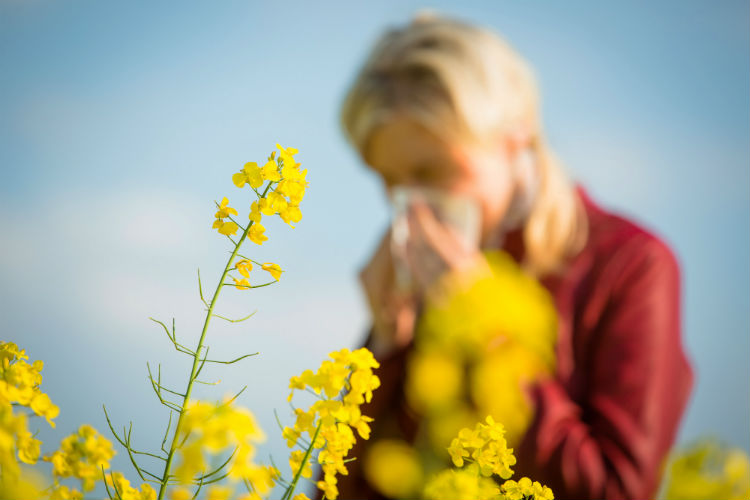What are Some Common Summer Allergy symptoms?
Summer is a key allergy time for some people because we’re outside more. Summer allergies usually begin in June and end in September, with symptoms peaking in June and July.
What Causes Summer Allergies?
During the long, sunny days of summer, more people head outdoors to garden, entertain in the backyard, and enjoy camping, hiking, and biking adventures. Additionally, common allergens such as mold and ragweed pollen are active this time of year. The following outdoor sources can trigger summer allergies.
- Tree pollen - Tree pollens thrive when nights are cool and days are warm. Depending on your geographical location and the number and types of trees nearby, tree pollens may be especially high during the summer months.
- Grass pollen - Grasses, which grow in almost every geographical location, are the most common cause of summer allergies. Visit American Grass Pollen Guide to learn more about grass allergies.
- Mold - Outdoor molds can also cause summer allergies. Mold is sensitive to weather conditions and may increase in concentration depending on the weather. Certain mold spores are more likely to spread in dry, windy weather, while others thrive in high humidity, such as fog or dew.
- Ragweed - Ragweed is one of the most common causes of allergies in late summer and into fall. This blooming plant grows in most parts of the United States. An individual plant can produce as many as 1 billion pollen grains, which are tiny, incredibly lightweight, and spread easily. Ragweed begins to release pollen in August and continues through November.
- Mugwort - This perennial plant is one of the more common allergens found toward the end of summer into early fall. Mugwort contains proteins that may result in an allergic reaction among pollen-sensitized people.
- Nettle - This annual and perennial plant with stinging hairs on its flowers and leaves can cause allergic reactions when people inhale the pollen or come into contact with the plant.
Summer fruits and veggies
Some people are sensitive not only to pollens but also to certain foods with similar proteins as those found in common allergens, such as grasses and weeds. If you experience a short-term sensation of tingling lips, swelling of the mouth, or a scratchy throat when you eat a raw summer fruit or vegetable, you may have this type of allergy known as Pollen Food Allergy Syndrome, or Oral Allergy Syndrome. If you’re concerned about your symptoms or experience food allergies that extend beyond your mouth, contact your healthcare provider or visit a nearest emergeny room to rule out the possibility of a more serious food allergy.
What are Summer Seasonal Allergy Symptoms?
Summer seasonal allergy symptoms are much the same as those that troubled you in Spring:
- Congestion
- Runny Nose
- Watering Eyes
- Sneezing
- Coughing
- Wheezing
- Itchy eyes and nose
- Sore Throat
- Dark circles under the eyes
- Skin rashes
How Summer Seasonal Allergies are Diagnosed
The best way to get seasonal allergies diagnosed is to visit your doctor. They’ll ask about your symptoms and allergic history, and if your allergies are severe, they may refer you to an allergist who specializes in diagnosis and allergy treatment.
The skin test administered by allergists involves exposing a small spot of your skin to a tiny sample of allergen — if you’re allergic, a small bump will form — but your provider may do a blood test instead. Your doctor will refer to these tests when recommending a treatment.
How Seasonal Allergy Treatment Works
A wide variety of over-the-counter solutions for allergies are available: antihistamines, decongestants, eye drops, nasal irrigation, and others. If your allergic symptoms are treatable by an over-the-counter option, your doctor will often recommend one.
If your allergic reactions are sufficiently severe or have the potential to become so, your doctor may prescribe and recommend you carry two doses of epinephrine shot, better known as an epi-pen.
He or she may also recommend a prescription medicine or spray, or may treat you via immunotherapy, which accustoms your body to allergens in tiny doses using tablets, shots, or drops. Whatever your doctor chooses, you can reinforce those efforts with your own by recognizing where allergens come from and how to keep as many of them out of your home as possible.
Our ER is open 24/7 to help treat and diagnose minor and major emergencies. Schedule an emergency room appointment with us. Our board-certified physicians are available 24 hours.



.jpg)